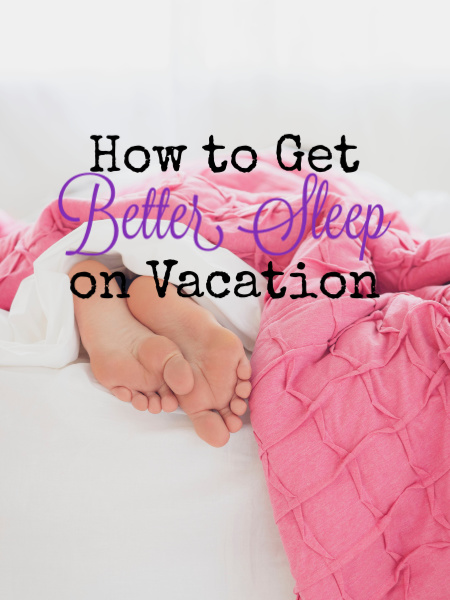New destinations, new people, new food—travel holds some great benefits, but it can be hard to appreciate them if you’re struggling to stay awake. Poor sleep can leave you irritable, moody, and stressed, not exactly how most of us like to travel. However, there are ways to sleep better while you’re away from home. Some are simple while others take some preparation, but they’re all worth it.
 |
| Photo by Tracey Hocking on Unsplash |
Make It Feel Like Home
You may not have the comfort of your own bed at a hotel or AirBnB, but you can make it feel more like home. If you can, bring along items or stimuli you normally use at home. Travel with a favorite blanket or pillow, create a relaxing bedtime playlist, or bring along your favorite candle. Anything that looks, smells, and feels like home can be a huge help.
Follow Your Regular Routine
Your body is trained to follow a regular routine so it makes sense to keep that same routine when you’re away from home. The predictability of a routine acts as a trigger for your brain to start your sleep cycle. Your routine doesn’t need to be complicated to be helpful. If you normally take a bath then read a book before going to bed, do the same thing and keep everything in the same order while you travel.
Turn Down the Heat
Your body needs certain conditions to successfully fall and stay asleep. At the start of the sleep cycle, the body temperature drops. It stays slightly lower throughout the night until it’s time to start waking up, at which point it slowly rises again.
Cool room temperatures help maintain that lower body temperature. It keeps you from overheating and prevents a premature wake-up. Typically, temperatures between 60 to 68 degrees work best, but that will depend on whether you sleep cool or warm. You might have to make some adjustments and experiment to find a temperature that works best for you.
Keep It Dark and Embrace the Morning
Light has a powerful impact on the timing of your sleep cycle. Sunlight and other forms of blue spectrum light suppress sleep hormones. At bedtime, block out as much light as possible. This is especially important if you’re fighting jet lag. Your body bases the timing of your sleep cycle on the Earth’s day-night pattern. When you hop time zones, it needs all the help it can get to catch up with the changes to that pattern. Bring along a sleep mask and/or some binder clips to keep the curtains closed and the room dark.
Once morning rolls around at your destination, get out of bed and get some early morning sunshine. Exposure to light early in the day helps set sleep patterns for the next 24 hours.
Time Your Meals and Eat Smart
Light isn’t the only way the body times the sleep cycle. It also uses other predictable patterns like meal timing to determine when to release sleep hormones. Try to eat your meals at approximately the same times each day to give your brain some kind of schedule to follow.
You can also help by avoiding heavy, high-fat meals close to bedtime. Also watch out for acidic, spicy, and caffeine-laden foods that could cause indigestion or heartburn.
Use a Sleep Aid
While I don't usually have issues sleeping, the first day or two away from home can be difficult for me to drop off. I have a pillow spray that chills you out, I've also used Dream Water (both the liquid and the powder), and also CBD gummies. Whatever you find works for you at home should work when you are traveling, so take those things along.
Start On The Plane
Sleeping on the plane can not only help your body combat germs, but it helps you avoid jet lag, too. If you need tips on how to sleep better or just on the plane in general, here are the tips I use. It helps to figure out what normally will help you, like I said above, so do some research before you travel if you don't usually use anything to go to sleep, or it's something simple, like a chill podcast or certain music that you can download before you leave home.
Sleep is the foundation of your health. You need it to be alert, happy, and ready to go. As you develop a travel plan, include ways to enhance your sleep. The changes you make in favor of better sleep may be small but the payoff can be well worth it.
Have you ever lost valuable travel time because of poor sleep?
Disclaimer: This post contains affiliate links and I may get compensated for any purchases you make through them. This helps me continue to bring you quality content, so thanks in advance.

No comments:
Post a Comment